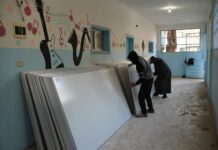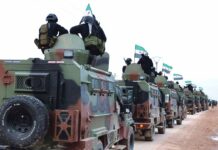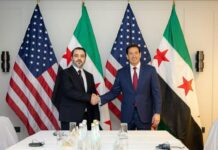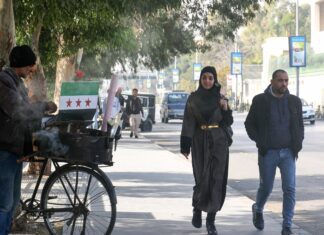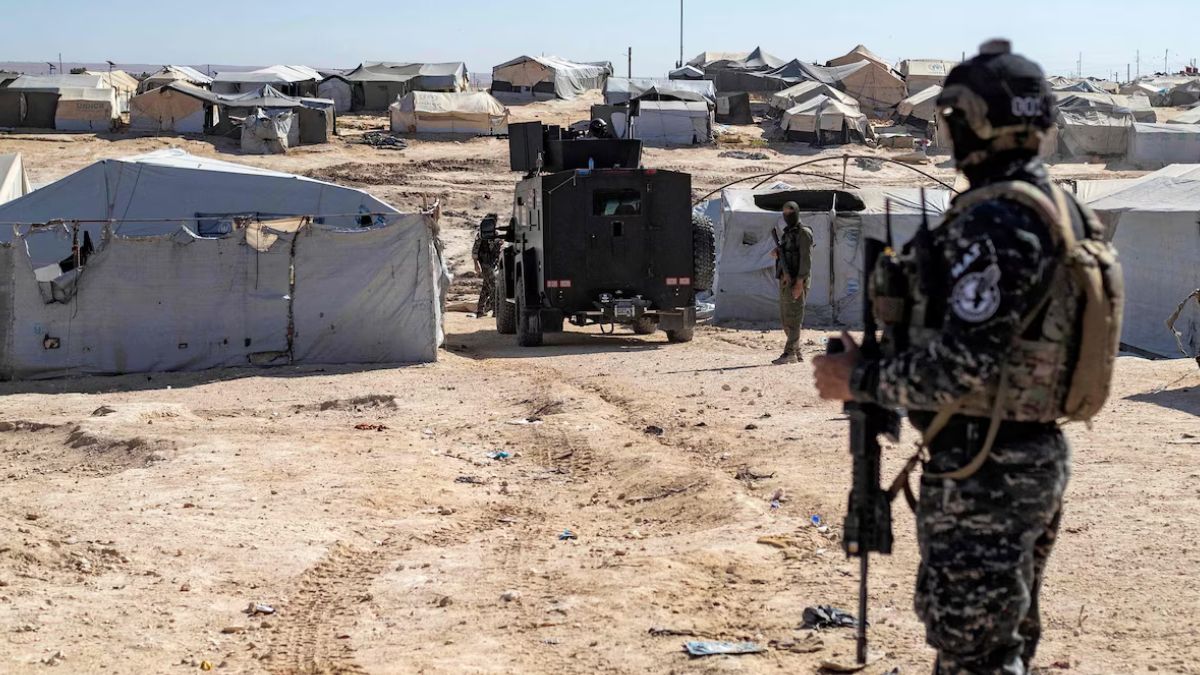
The Internal Security Forces of the Autonomous Administration in northeast Syria, known as Asayish, launched a new campaign Sept. 5 at Al-Hawl camp in Hasakah province. The operation, which the force described as “humanitarian and security,” aims to curb Islamic State influence, dismantle alleged networks and protect humanitarian workers.
Asayish reported 30 attacks in recent months targeting aid staff and facilities inside the camp, which Amnesty International estimates houses 46,500 Syrians, Iraqis and other nationals. In a statement, the force warned that ISIS-linked women continue to indoctrinate children, describing attempts to raise a new “cubs of the caliphate” generation.
Two days before the operation began, Asayish announced it had stopped 56 ISIS families from attempting a mass escape in a truck. Yet humanitarian workers told local outlets that tents and belongings were vandalized during the raid, and some alleged the “escape attempt” was fabricated to justify the security campaign.
Wider Crackdowns on Dissent
Beyond Hawl, the Syrian Democratic Forces (SDF) extended arrests into Hasakah city, where local activists reported over 50 residents were detained. Detainees included critics of the administration and relatives of opposition figures abroad. Photos later circulated showing the group labeled as ISIS suspects before several were released without charges.
A former SDF member alleged such operations often serve to “relieve political pressure” on the group. “They raise the ISIS threat whenever Turkish military pressure increases or talks with Damascus stall,” he said.
Clashes Along Government Frontlines
Tensions also flared Sept. 4 in Madan, Raqqa province, when SDF fighters and Syrian army units exchanged fire for nearly 30 minutes. Coalition aircraft flew overhead but did not intervene. No casualties were reported, but the incident added to civilian fears of escalation.
Meanwhile, Anadolu Agency reported the SDF has expanded tunnel networks and built three military installations along the Turkish border and Syrian government contact lines. These include artillery, drones and mined passages, with experts warning that extensive subterranean networks in Raqqa could destabilize infrastructure and endanger the public.
Reactions from Damascus and Ankara
The Syrian government continues to press the SDF to implement the March 10 deal, which calls for integration into the Syrian army. Talks have stalled, with Damascus insisting that the administration dissolve parallel institutions.
Turkey has voiced sharper warnings. Defense officials said Sept. 2 that the SDF’s refusal to disarm threatens Syria’s unity and Turkey’s security. President Recep Erdogan reiterated that Ankara “will not leave Syria alone” and described the Kurdish people as “our brothers,” distinguishing them from armed factions he accused of sowing chaos.
Nationalist Movement Party leader Devlet Bahceli said Sept. 3 that SDF noncompliance could make “joint military intervention by Ankara and Damascus inevitable.” He also linked the group to the PKK, which Turkey and its allies—including the US and EU—consider a terrorist organization.
The cycle of security crackdowns, arrests, and border entrenchments has raised questions among observers about whether the SDF’s reliance on force may deepen instability rather than secure long-term control.

